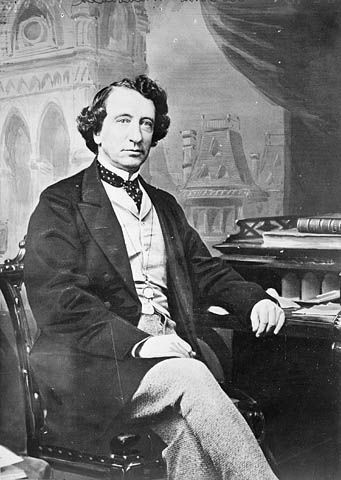|
Golden Spike Days
The Golden Spike Days Festival is an annual family festival held in Rocky Point Park, Port Moody, British Columbia. The festival commemorates the completion of the Canadian Pacific Railway to the city and the Confederation of Canada Canadian Confederation (french: Confédération canadienne, link=no) was the process by which three British North American provinces, the Province of Canada, Nova Scotia, and New Brunswick, were united into one federation called the Dominion of .... The festival includes many live musical performances, dancers, parades, comedians, rides, and food shops. This festival attracts an average of 40,000 people every year. The first Golden Spike Days Festival was held in 1976. A decades-old tradition in the Tri-Cities area, the Golden Spike Days Festival recognizes the heritage contribution of the Canadian Pacific Railway and the Barkerville Gold Rush to Port Moody as the true Western Terminus of the cross-Canada CPR line. References External links * ... [...More Info...] [...Related Items...] OR: [Wikipedia] [Google] [Baidu] |
Port Moody
Port Moody is a city in British Columbia, Canada, and a member municipality of the Metro Vancouver Regional District. It envelops the east end of Burrard Inlet and is the smallest of the Tri-Cities, bordered by Coquitlam on the east and south and by Burnaby on the west. The villages of Belcarra and Anmore, along with the rugged Coast Mountains, lie to the northwest and north, respectively. It is named for Richard Clement Moody, the first lieutenant governor of the Colony of British Columbia. History The Coast Salish people were the first to live in this area, and archaeology confirms continuous occupation of the territory for at least 9,000 years. Other First Nations to live in the area are Musqueam, Squamish, Stó:lō and Tsleil-Waututh. Port Moody is named for Colonel Richard Clement Moody, of the Royal Engineers. It was established at the end of a trail that connected New Westminster with Burrard Inlet to defend New Westminster from potential attack by the US. After 1859, ... [...More Info...] [...Related Items...] OR: [Wikipedia] [Google] [Baidu] |
British Columbia
British Columbia (commonly abbreviated as BC) is the westernmost province of Canada, situated between the Pacific Ocean and the Rocky Mountains. It has a diverse geography, with rugged landscapes that include rocky coastlines, sandy beaches, forests, lakes, mountains, inland deserts and grassy plains, and borders the province of Alberta to the east and the Yukon and Northwest Territories to the north. With an estimated population of 5.3million as of 2022, it is Canada's third-most populous province. The capital of British Columbia is Victoria and its largest city is Vancouver. Vancouver is the third-largest metropolitan area in Canada; the 2021 census recorded 2.6million people in Metro Vancouver. The first known human inhabitants of the area settled in British Columbia at least 10,000 years ago. Such groups include the Coast Salish, Tsilhqotʼin, and Haida peoples, among many others. One of the earliest British settlements in the area was Fort Victoria, established ... [...More Info...] [...Related Items...] OR: [Wikipedia] [Google] [Baidu] |
Canadian Pacific Railway
The Canadian Pacific Railway (french: Chemin de fer Canadien Pacifique) , also known simply as CPR or Canadian Pacific and formerly as CP Rail (1968–1996), is a Canadian Class I railway incorporated in 1881. The railway is owned by Canadian Pacific Railway Limited, which began operations as legal owner in a corporate restructuring in 2001. Headquartered in Calgary, Alberta, the railway owns approximately of track in seven provinces of Canada and into the United States, stretching from Montreal to Vancouver, and as far north as Edmonton. Its rail network also serves Minneapolis–St. Paul, Milwaukee, Detroit, Chicago, and Albany, New York, in the United States. The railway was first built between eastern Canada and British Columbia between 1881 and 1885 (connecting with Ottawa Valley and Georgian Bay area lines built earlier), fulfilling a commitment extended to British Columbia when it entered Confederation in 1871; the CPR was Canada's first transcontinental railway. ... [...More Info...] [...Related Items...] OR: [Wikipedia] [Google] [Baidu] |
Confederation Of Canada
Canadian Confederation (french: Confédération canadienne, link=no) was the process by which three British North American provinces, the Province of Canada, Nova Scotia, and New Brunswick, were united into one federation called the Dominion of Canada, on July 1, 1867. Upon Confederation, Canada consisted of four provinces: Ontario and Quebec, which had been split out from the Province of Canada, and the provinces of Nova Scotia and New Brunswick. Over the years since Confederation, Canada has seen numerous territorial changes and expansions, resulting in the current number of ten provinces and three territories. Terminology Canada is a federation and not a confederate association of sovereign states, which is what "confederation" means in contemporary political theory. It is nevertheless often considered to be among the world's more decentralized federations. The use of the term ''confederation'' arose in the Province of Canada to refer to proposals beginning in the 1850s to f ... [...More Info...] [...Related Items...] OR: [Wikipedia] [Google] [Baidu] |



